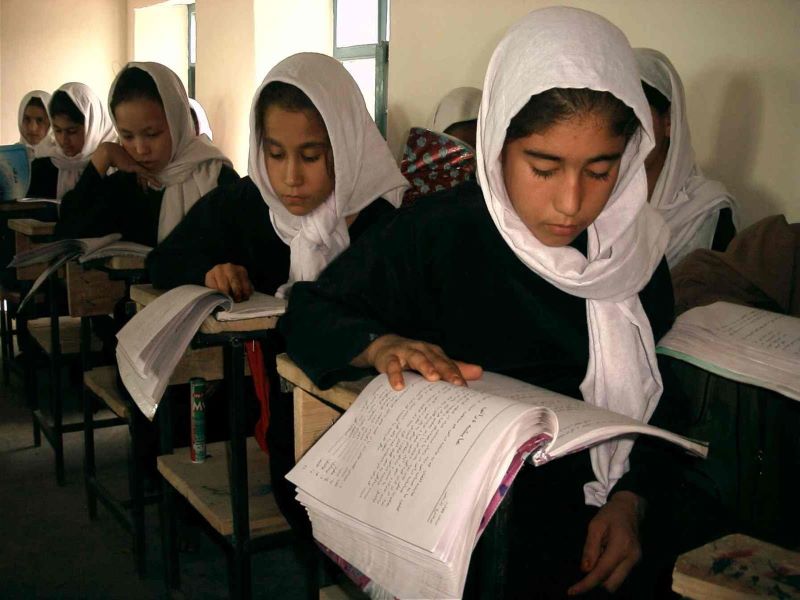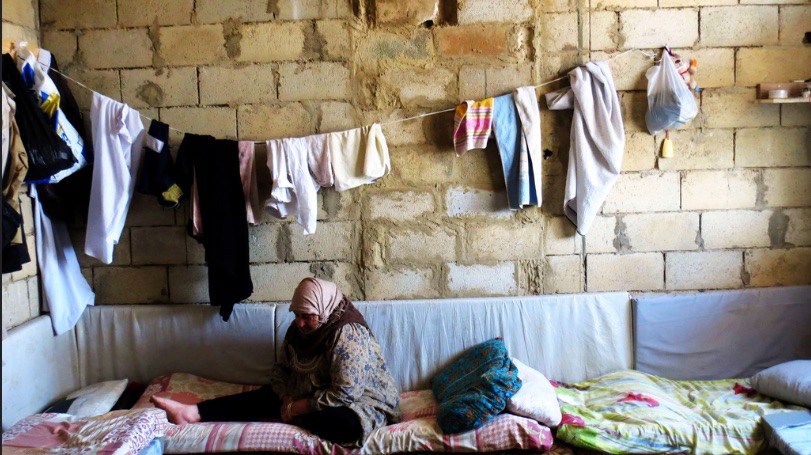Women’s status in the workforce and their ability to obtain positions of authority continues to be a topic of deep contention. Despite the numerous advances that women have made, their presence equal to men within security and defence industries is lacking, bringing into question the role of women today in areas of power and influence, and if the so-called ‘glass ceiling’ has truly been broken.
As an assistant professor of political studies at Queen’s University, the chair of Women in International Security Canada and the director for the Center of International Defense Policy, Dr. Stéfanie von Hlatky sits down with the NATO Council of Canada to discuss what role, if any, women play in exerting leadership positions in Canada’s security and defence sectors.

NCC: What would you say is the role of Canadian women in high-ranking positions within the Canadian defence and security sectors? Would you agree that their presence is lacking or would you argue that they are obtaining more key positions?
SvH: I would say that there are a number of very qualified women at the junior level and the senior level within the Canadian defence and security sectors, however something happens at the mid-level and that is where we find a drop in numbers. This could be attributed to the critical juncture when women start to think about raising their families. As a result, women drop off and we lose a lot of high-ranking women at the mid-level range who have some very valuable skills and who are strong assets to the Canadian military.
NCC: In 2013, United States Secretary of Defense Leon Panetta lifted the ban on women serving in active combat roles. Those supporting this decision claim that women who serve on the front lines will be eligible to move up the ranks within the military and obtain positions not previously available. Do you agree that it is necessary for women to engage in active combat in order to achieve a level of seniority within the realm of security and defence?
SvH: This issue is very complex. One key thing to remember is that there is an equality argument and that we have an obligation to remove barriers to women in all sectors, the military included. However, there is also the argument to be made with regard to military effectiveness. When you allow women the opportunity to serve in combat roles, the pool of applicants will become much greater, yet it is important to remember that promotion is all about the better person for the job. Women also bring special skills to the table with regards to combat roles. This was demonstrated in the recent war in Afghanistan. Only female soldiers were able to reach out and communicate with the local female population and female engagement teams contributed to the military’s success.
NCC: Many women argue that they feel pressured to choose between family life and their work. Is it possible that women who do enter the field of security and defense are simply unable to balance both obligations? Or would you attribute their inability to reach a level of authority to a particular barrier that is unique to the military and defence sectors?
SvH: I would say that there is something unique about the military and defence sectors. Its members are often serving long deployments, however this is not something that only women experience, but men too. Very often, women carry the additional burden of trying to fulfill the expectations of working effectively and caring for their families. I believe that it is important to make sure that discussing with your spouse early on, about the roles that both partners will undertake should they decide to one day start a family, so that not all of the expectations fall upon the woman.
We can facilitate this within our own society by showing that we value when men do take the decision to take time off and stay with the kids while their partners go to work. Although we already have some policies in Canada with regards to parental leave, we need to emphasize that caring duties are just as important as working duties.
In my own experience, I was lucky to benefit from the support of my spouse. Being pregnant and having children at the beginning of my career, my spouse recognized that I really wanted to go back to work. It is an illustration that is very personal in my case. My husband had his big push in his mid-20s, and I too wanted to be very engaged with my work so I made sure that we were both on board in how to share our professional and caring roles.
NCC: Military and defence sectors are still perceived as being very confrontational and male-dominated. Could working in such an aggressive environment be a factor which discourages women from seeking employment in such a field?
SvH: I don’t believe that the aggressive nature of the deployments is a factor, however the organization and the culture of the military could arguably play a role in discouraging women from becoming more involved. The military is shaped by men and it is not easy for women to join an organization that looks nothing like them. That being said, things are slowly changing. The department of defence slowly is changing its training approach and the organizational culture as a whole. It is very important to make more room for women and to make the entire structure more open.
NCC: Mari Skåre, NATO Secretary General’s Special Representative on Women, Peace and Security, has emphasized the importance of understanding ‘gender perspectives’ and argues that it is not possible to ‘prevent, manage and resolve conflicts without understanding the social role that both men and women have in a given context.’ Could you comment on this statement?
SvH: The ‘Gender perspective’ is a new lens used for considering the role of men, women, boys and girls in situations which are precarious. When you are creating policy, it is important that through each phase of conflict you look at not just the battlefield, but the dynamics in the community as well and how women and girls fit in. We call this ‘gender mainstreaming’ and it should be part of our thinking. How will policy affect people everywhere and not just on the battlefield? If you are excluding gender perspectives then you are missing the big picture and impairing your ability to find the right solutions.
NCC: UN Resolution 1325 promotes the inclusion and full participation of women in peace and security efforts, and states the importance of understanding how sexual violence is a tactic of warfare. If women still don’t represent at least 50% of employees in the defense and military sectors, do you believe its possible for sexual violence conflicts to be properly addressed? Do women have to be in those fields for such problems to receive attention and support?
SvH: The presence of women does help to raise awareness and to design good responses with regards to sexual violence. However, the whole intervening force should be aware of sexual assault risks. It is important that military interventions factor in the reality of gender-based violence, and that intervening states do so systematically.
I would also add that it helps to have champions who have a high profile, high visibility, who talk about sexual assault publicly and who are able to reach a wide audience. The voice of champions certainly matters a lot in bringing awareness to the problem of sexual violence.
NCC: Would you say that Canada is ahead of other countries with regards to employing more women in high-ranking defence positions or is the lack of women in such positions universal?
SvH: Canada has done fairly well in terms of implementing progressive policies. Admiral Jennifer Bennett and Brigadier General Chris Whitecross are two influential women who come to mind and they embody the fact that Canadian policies have been successful in encouraging strong models of female leadership. However, the approach that has been taken is that the Canadian forces make no distinction on gender, and this gender-blind attitude limits women from progressing further within the defence sector. It is important to recognize that women and men are not necessarily the same and to recognize the specific roles and contributions that women can make. Women are still subject to sexual assault and to say that there is no difference between the two sexes is to deny the structural discrimination that women face when in the military.
NCC: What in your opinion must be done by both women and the Canadian defence and security sectors for further female entry and advancement to take place?
SvH: This is why organizations like Women in International Security Canada (WIIS) were created; to make connections between women so that they can have greater visibility in the field. If you have been mentored or provided with special opportunities it is much easier for you to raise your profile. We believe that making the link between junior and senior level women in the defence and security sectors is very important as it supports women throughout their profession.
Stéfanie von Hlatky is an assistant professor of political studies at Queen’s University and the Director of the Queen’s Centre for International and Defence Policy (CIDP). She received her Ph.D. in Political Science from Université de Montréal in 2010, where she was also Executive Director for the Centre for International Peace and Security Studies. In 2010, she was a postdoctoral fellow at Georgetown University’s Center for Peace and Security Studies and a policy scholar with the Woodrow Wilson International Center for Scholars in Washington, D.C. In 2011, she was a Visiting Professor at Dartmouth College’s Dickey Center for International Understanding. Prior to joining Queen’s, von Hlatky was a senior researcher with the Center for Security Studies at ETH Zurich. She is also the founder of Women in International Security-Canada. She has published in the Canadian Journal of Political Science, International Journal, European Security and has a new book with Oxford University Press entitled American Allies in Times of War: The Great Asymmetry (2013). Hannah Styffe



